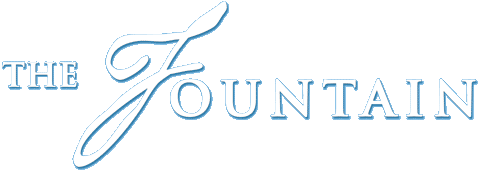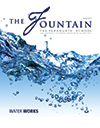Testing the Waters
Imagine not knowing if your morning glass of water is ridden with E. coli.
Two and a half billion people worldwide face that reality, lacking access to adequate sanitation.
Alice Wang is changing that.
When Alice Wang was an undergraduate at the University of North Carolina at Chapel Hill, she worked with Mark Sobsey, professor in Environmental Sciences and Engineering. After graduating in 2010, she came back to the university for her doctorate in Public Health, rejoining Sobsey and his initiatives towards clean water.
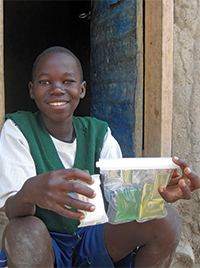
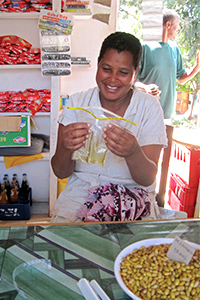
In 2010, Sobsey won an award for water innovation sponsored by Nike, NASA and USAID. From the award money, the team was able to prototype their compartment bag test—a simple, portable test of water sanitation. "The goal was to make it easy enough that anyone can do it anywhere," Wang says.
The prototype is a plastic bag with five different compartments, each a different size, that add up to 100 milliliters. A water sample is mixed with a bacteriological culture medium, poured into the bag, and then each compartment is sealed off with external clips. Once the sample incubates overnight, compartments that turn blue are contaminated with E. coli. The number of compartments that turn blue indicates the saturation of E. coli in the water.
While there are other field tests for water contamination, this UNC-Chapel Hill team created one that has been shown to work under a greater range of temperatures, that does not need to be taken to a lab to determine results, and that tests the UNICEF-recommended sample size of 100mL.
The test, which determines whether water sources are precarious, can be used to collect nationwide data on water sources, storage and safety. Hundreds of the compartment bag tests were sent to Haiti after the 2010 cholera outbreak, and the test was used in five continents this summer alone. Similarly, Wang hopes the test will be used in a USAID pilot in Liberia this spring to test water conditions in sub-Saharan Africa.
The innovation has won awards from Carolina Challenge, Walmart Better Business Plan, and the Campus Y, totaling $33,000.
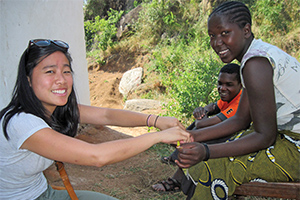
Alice Wang (left) has traveled the world, sharing her product to help people drink safe water.
Wang has been able to focus exclusively on this research because she received a highly competitive fellowship, the EPA Science to Achieve Results Fellowship, from the federal Environmental Protection Agency. Given the opportunity to work solely on her research, Wang has been able to focus all her attention on this world-changing project.
In May, Wang, Sobsey, and two other Carolina staff members cofounded Aquagenx, LLC and hired a chief operating officer to commercialize their product. After her expected graduation in May 2014, Wang plans to continue working with the expanding company. "We've put so much energy into this," Wang says, "and I really do think we can better the world with it."
♦ Cindy J. Austin
Photos courtesy of Alice Wang

